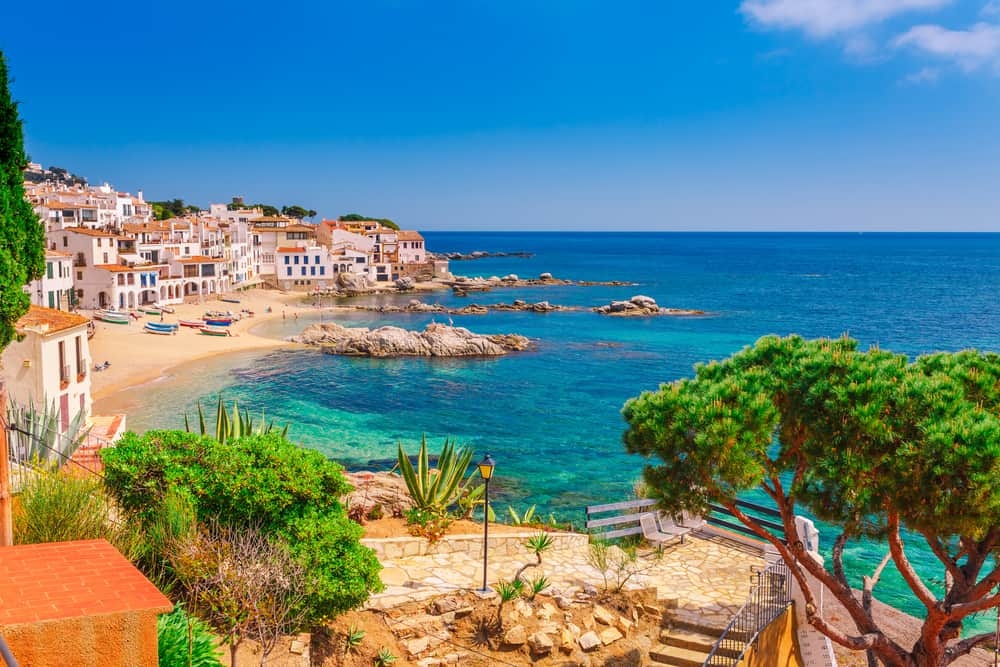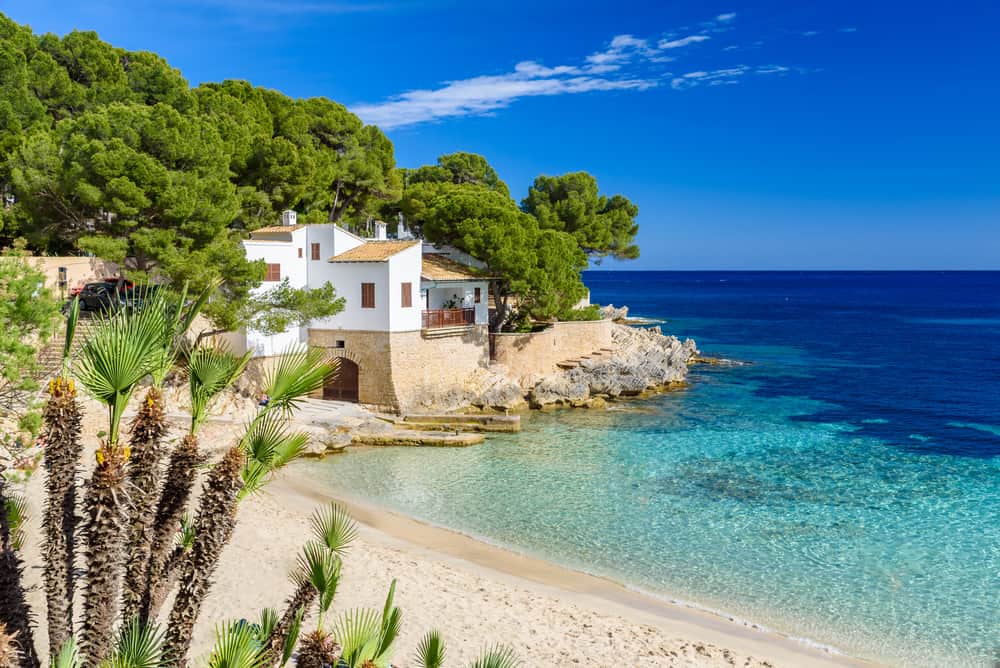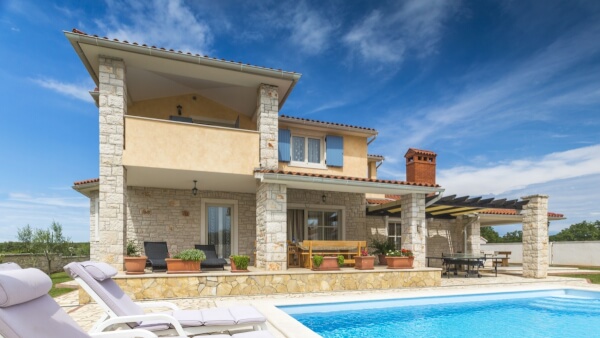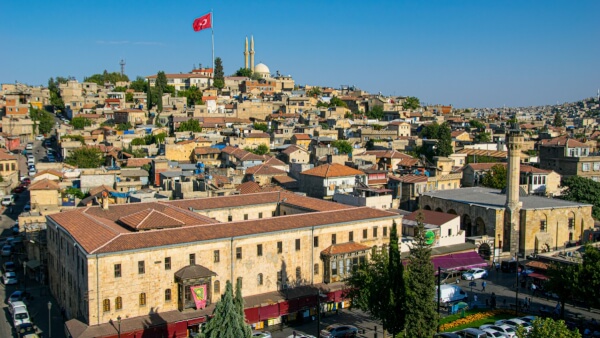What is the 'Nota Simple' in Spain and how do you get one?
Everything you need to know about the Nota Simple in Spain - an essential document for buying property - including how you can get it and how much it costs.

Spain is an extremely popular destination for UK expats, all drawn there by the sunny weather, beautiful beaches, culture-rich cities and delicious food. Whether you’re thinking of working in Madrid or Barcelona, or retiring to the Costa del Sol, you’ll need to find somewhere to live.
While renting in Spain is definitely an option, many British expats choose to buy property if they’re going to stay in the long term.
In this guide, we’ll run through everything you need to know about buying a property in Spain as a foreigner. This includes info on mortgages, fees and taxes, the latest Spanish property prices and pitfalls to avoid.
And if you’re looking for ways to save money on currency exchange when buying property in Spain, check out the money services provider Wise. You can send large transfers with Wise for low fees* and great exchange rates - making it ideal if you’re sending a secure international transfer.
Before you start your house hunt, it can be useful to know a little about how the process of buying property works in Spain.
Here’s a quick overview of the steps involved:
Before you do anything, it’s a smart idea to get your finances sorted. This means setting a budget, getting a mortgage offer (approval in principle) and getting all your paperwork together.
You might also want to open a Spanish bank account, or at least make sure you have an international account in euros.
In order to buy property in Spain as a foreigner, you’ll need an NIE. This stands for Número de Identificación de Extranjeros, and it’s a Spanish tax ID number.
You can get this by visiting a Spanish police station and presenting your passport, or you can apply at a Spanish Consulate if you’re still in the UK.
Now it’s time to start searching for your dream home. You can use online property portals and/or local estate agents to find properties. We’ll run through some tips later on how and where to start your search.
If you’ve found somewhere you like, arrange a viewing as soon as you can, and start researching the area in the meantime.
If you’re serious about a property and ready to make an offer, it’s recommended to first ask to see the Nota Simple. This is a crucial legal document which outlines the key details of the property, such as:¹
You can get a copy of the Nota Simple at the local property title registry, or online at the Registores website.
Always cross-check the details of the Nota Simple with the actual details of the actual property, to make sure there are no discrepancies. If there are any, these will need to be resolved before the sale can go through.
Just before you make an offer, you might want to get a building survey carried out. This involves hiring a surveyor to check the property for structural or other issues.
If the survey flags anything up, you may be able to negotiate on price when putting in your offer.
It’s important that the surveyor also checks details such as the size and boundaries of the property against the information recorded on the Nota Simple.

While it’s not mandatory, it’s a good idea to find and appoint a property lawyer. They will check over and translate all documents and contracts, as well as carrying out due diligence on the transaction.
A personal recommendation is a good way to find a solicitor, but you can also find a list of English-speaking property solicitors on the UK Government website.
Whoever you appoint, make sure they are registered with the local bar association Colegio de Abogados.
The next important step is to submit a competitive offer to the estate agent, or to the buyer directly. You can negotiate, just like in other countries. Once an agreement is reached, a notary will summarise the offer in writing.
If your offer is accepted, the next step is for both parties to sign the preliminary agreement. In Spain, this is known as the contrato privado de compraventa. You’ll also arrange a transfer for the deposit, which is usually around 10% of the purchase price.
At this stage, you might want to contact your mortgage provider to finalise the financing for your purchase.
This is the final crucial piece of paperwork, and it must be formally signed in the presence of a notary. You’ll also need to have your solicitor with you in the notary office (or arrange for power of attorney to be provided).
The title deed will be transferred to your name and you’ll arrange a transfer for the remaining balance. Read more on the best UK banks for sending money abroad.
After all that’s done, you’ll get the keys to your new home.
| 💡 Read more: How to transfer large amounts of money from the UK? |
|---|
Unless you have the cash upfront, you’re likely to need a mortgage to finance your Spanish property purchase. UK banks aren’t likely to offer funds for overseas purchases, so you might need to try a Spanish mortgage provider.
Spanish banks do offer mortgages to foreign citizens. However, you’re likely to get a lower loan-to-value (LTV) rate than local residents, so you may only be able to borrow around 60% to 70% of the property’s value rather than around 80%. This means you’ll need a larger deposit.²
It’s a good idea to start shopping around for mortgages before starting your property search in earnest. You might want to use a broker, who can help you find the right mortgage for you. Simply having someone on your side who speaks Spanish and really understands the system can pay dividends.

| ‼️ Important update: The Spanish government has announced plans to introduce a new 100% property tax in Spain for UK buyers. Read this to find out more. |
|---|
Alongside the property price, you also need to budget for the fees and taxes involved in your Spanish property purchase.
Here are the essential costs you need to know about:¹
| Tax/fee name | Rate/fee |
|---|---|
| Property transfer tax | - 6% to 10% of the purchase price for existing properties - 10% VAT for new build properties |
| Notary fees, land registration fee and title deed tax | 1% to 2.5% |
| Legal fees | 1% to 2% |
| IBI property ownership tax (annual) | Varies based on cadastral value of the property and local tax rate |
| Refuse collection tax (annual) | Around €80 EUR a year |
| Wealth tax (annual) | Varies based on property value, only charged on values above €700,000 EUR |
Over the last year, the Spanish property market has seen an uptick both in the number of property sales and in house prices.
Prices in the first part of 2024 increased by 4% compared to the year before, with areas such as Madrid, Guipúzcoa, Cordoba, Caceres and Soria seeing the highest increases. Further increases in house prices are expected to continue into the close of the year.³
What this means as a buyer is that you may have to pay a little more for your dream Spanish property. You may also have to compete with other buyers, as demand is high and the supply of available properties is not quite able to meet it.³
But the local property market is looking to be in good shape, so it could be a good time to seize the opportunity if you find the right property.
There are no special requirements or paperwork for foreigners wishing to buy property in Spain, so you shouldn’t have any issues.
All you need is a financial number (NIE), valid ID and the funds or finance to support your purchase.
Spain is one of a number of countries which has a ‘Golden Visa’ scheme, which allows foreign citizens to get residency through making an investment in the country. One of the routes to investment was a property purchase worth over €500,000 EUR.
However, the Spanish government has now started the process of scrapping the real estate route, due to pressures on the local housing market. This means there will no longer be a direct route to residency through buying a qualifying property in Spain.⁴
Now we come to the all important question - how much money do you need to afford your dream home in sunny Spain?
According to cost of living database Numbeo, the cost of buying an apartment in Spain is between 36% and 51% cheaper per square meter than the UK - depending whether you buy inside or outside a major city centre.⁵
Although of course, it depends on the type of home and the exact area you’re buying in.
To narrow it down a little further, here’s a guide to what you can expect to pay per square metre in some of Spain’s major cities:⁶
| City | Average apartment price per sq.m - city centre | Average apartment price per sq.m - outside city |
|---|---|---|
| Madrid | €6,116 | €3,729 |
| Barcelona | €5,633 | €3,793 |
| Seville | €3,380 | €1,983 |
| Valencia | €3,099 | €2,006 |
Another thing to note when figuring out the price for property in Spain is that international transfers could get expensive, especially if the bank or provider adds a margin to the exchange rate to convert your pounds.
Consider checking out Wise to securely handle your large transfers with mid-market exchange rates and low, transparent fees*.
According to property site Idealista, the cheapest towns for property in Spain in 2024 are:⁷
The two main routes to find property to buy in Spain are local real estate agencies and online property websites.
It isn’t necessary to use a real estate agent to find a property to buy overseas. But it can be helpful, especially if you’re moving to Spain from the UK and are unfamiliar with the local property market.
If it’s the first time you’ve bought a property in Spain, then a specialist buying agent or broker might offer helpful advice and insight into the local market.
However, there will usually be a fee to pay for this service, and you should make sure you’re clear on what you’ll get for your money, as both the packages and prices can vary considerably.
The best way to get a head start on finding a place to buy in Spain is to look online. Great websites to find a house or a flat to buy include:
One of the main things to watch out for when buying property in Spain, or in any foreign country, are scams.
To avoid scams and other pitfalls, make sure to get local advice and recommendations for a broker. You should also check for membership of a professional body when working with any property experts, brokers or agents.
The API (Agente de la Propiedad Inmobiliaria) is an association of Spanish realtors, which works in regional chapters based across Spain. Choosing an agent in your local area who holds this membership should make sure you don’t fall foul of any scammers.⁸
Other important things to remember include:
Your dream home in Spain will be the one that closest fits your search criteria. The most important factors will be location, the type of home and of course, how much you can afford to spend.
If you’re not already living there, it’s worth making a trip to the specific town or city in Spain you’re interested in. You’ll want to check out the local area and view properties, making sure to pay attention to local transport links and amenities.

It’s a good idea to do as much research as possible before committing to purchase a property.
A crucial step is checking the Note Simple and other land registry information to check the legal status of the property, as well as if any debts, charges, building conditions or other restrictions are registered against it.
You’ll also want to commission a building survey or inspection, which will flag up any major issues and give you a better idea of what you’re buying.
Before you can get the keys to your new home, you’ll have a few key tasks to run through.
These include taking out insurance, setting up your utilities and carrying out any energy efficiency renovations.
It’s strongly recommended to take out a buildings insurance policy starting from your completion date. In fact, you might find it's a mandatory condition of your mortgage offer.
If you know when your completion date will be, it makes sense to get some essentials set up in advance of moving in.
A prime example is utilities, such as heating, power and water. Get these sorted as early as you can, and the moving process should be a little smoother.
If you’ve bought an older Spanish property, you might want to make some energy efficiency improvements to it. For example, rewiring the electrics or upgrading the air conditioning system.
And that’s it - our comprehensive guide to buying property in Spain for foreigners.
We’ve covered all the important stuff, from property prices, fees and taxes through to mortgages, how to start your search and how the buying process works in Spain. You should be all set to start your search.
And, if you want to save money while buying your new property in Spain, make sure to use the Wise account to send your international transfer. It’s not a bank account and offers customers an alternative option to a conventional bank account, but has similar features.
Here are the main benefits for using Wise: |
|---|
|
Sources used:
Sources last checked on date: 03-Dec-2024
*Please see terms of use and product availability for your region or visit Wise fees and pricing for the most up to date pricing and fee information.
This publication is provided for general information purposes and does not constitute legal, tax or other professional advice from Wise Payments Limited or its subsidiaries and its affiliates, and it is not intended as a substitute for obtaining advice from a financial advisor or any other professional.
We make no representations, warranties or guarantees, whether expressed or implied, that the content in the publication is accurate, complete or up to date.

Everything you need to know about the Nota Simple in Spain - an essential document for buying property - including how you can get it and how much it costs.

Read our guide on how to transfer money to buy property overseas, including all of the best options for UK residents and steps to set up a large transfer.

Read our guide on how to transfer money to buy property in Spain, including all of the best options for UK residents and steps to set up a transfer.

Read our complete guide to selling your property in Barbados, including info on the process, fees, taxes, legal requirements and more.

Read our comprehensive guide to getting a mortgage in Turkey from the UK, covering everything you need to know.

Read our essential guide to property tax in Turkey for foreigners and UK expats, including taxes on buying, selling and renting out property.